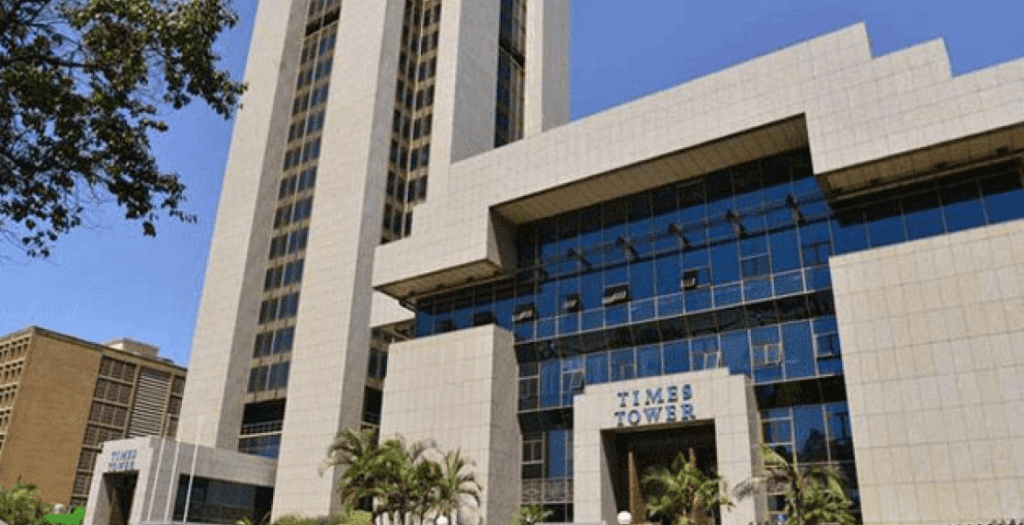Recent reports have revealed that the call data taxes and the airtime taxes collected by the Kenya Revenue Authority (KRA) dropped by 19.8 percent. This translates to a loss of 7.4 billion Kenyan Shillings.

The 19.8 percent drop is coming as a result of the increase in excise duty to 20 percent from the previous percentage of 15.
Data from the Kenya National Bureau of Statistics (KNBS) showed that the Kenya Revenue Authority (KRA) collected a total of 29.8 billion Kenyan Shillings in 2021 which was significantly lower than the 37.2 billion Kenyan Shillings which it collected in 2020.
In 2021, the Kenyan government levied a higher tax via the Finance Act, 2020. The decision was aimed at collecting not less than 8 billion Kenyan Shillings in additional revenues from Telkom Kenya, Safaricom, and Airtel Kenya.
The additional tax charges were however, put on the users by telecommunications companies. Safaricom increased its rate for making calls from 4.30 Kenyan Shillings per minute for peak time to 4.87 Kenyan Shillings per minute. For Airtel, it increased its rate for making calls to 2.78 Kenyan Shillings per minute.
Sadly, the new tax had a negative impact on users and their interactions with the data services and voice services offered by the telecommunications companies resulting in said companies experiencing a drop in revenues which took a significant hit on the taxes collected.
Read Also: Kenyan Wealth Tax Could Generate 125 Billion Every Year
The Kenya National Bureau of Statistics (KNBS) stated in the most recent Economic Survey that, “Excise revenue increased across all the sub-categories except for airtime which decreased by 19.8 percent from Sh37.2 billion to Sh29.8 billion.”

Data and airtime have become the largest sources of excise taxes outperforming financial transactions, Spirits, Beer, bottled water, and cigarettes.
The Kenya Revenue Authority (KRA) collected 28.5 billion Kenyan Shillings from Beer and other taxes that are referred to as sin taxes, 28.9 billion Kenyan Shillings from financial transactions, and 29.8 billion Kenyan Shillings from Airtime.
Mobile telephone service users in Kenya have also had to bear the brunt of paying the Value Added Tax (VAT) which is currently set at 16 percent.
In 2018 the excise duty on Airtime increased from 16.1 billion Kenyan Shillings the year before, to 26.2 billion Kenyan Shillings when the Kenyan government increased the tax from ten (10) percent to fifteen (15) percent.
Read Also: Airtel Increases Costs For Calls As Airtime Tax Begins Implementation
This resulted in a corresponding increase in charges for Short Message Services (SMSs) also known as text messages, data, and calls as telecommunications giant; Safaricom increased the cost of its alls by 30 cents, and costs of Short Message Services (SMSs) by 10 cents.

For Zuku which is owned by the Wananchi Group, it increased the cost of its 10Mbps package for its users from 3,500 Kenyan Shillings to 3,999 Kenyan Shillings.
The continuous increase has however backfired and led to a significant number of consumers reducing their frequency in browsing the internet and making phone calls.
Telecommunications companies operating in Kenya revealed that the extra charges will be shouldered by their users and could have a negative impact on the users’ consumption and also negatively impact innovation especially at a point in time when the self employed youths in the country, have begun to create and operate businesses which are heavily digitally based.
Mobile data has become a major sector where telecommunications companies as well as internet service providers in Kenya have continued to compete with each one looking to become the number one choice for users.
Read Also: KRA Set To Limit Filing Nil Tax Returns
Data from the Communications Authority of Kenya (CA) revealed that in the quarter which ended in December of 2021 the Republic of Kenya had a total of 65.08 million mobile subscribers. Out of those users, an estimate of about 46.3 million of them had mobile data subscriptions in that period.

For Safaricom it’s Voice income reduced by 4.8 percent to 82.5 billion Kenyan Shillings in the year which ended in March of 2022. The 82.5 billion Kenyan Shillings made up a total of 27.6 percent of Safaricom’s revenue. This is lower than the 34.5 percent it hit in 2019.
The telecommunications company revealed that while its data income experienced an impressive 8.1 percent growth to 48.4 billion Kenyan Shillings, the growth was negatively affected in the second half of the financial year as a result of the new taxes.
The Chief Executive Officer (CEO) of Safaricom; Peter Ndegwa made it known during an investor briefing that, “Data performance in the first half of 2022 was weighed down by absorbed excise duty adjustments from August 2021 which slowed down industry momentum and price rationalisation.”
Read Also: Telkom To Ramp Up Its 4G Network In Kenya
The importance of mobile phones and their usage has resulted in tax increases. A study by the GSMA stated that while the mobile phone and its users are seen as front runners in Africa, it is now one of the most taxed countries in the region. This has led to support from other industries and its potential to grow even more becoming affected.
Read Also: Kenyan Government Plans To Exclude Startups From 1.5 Percent Digital Tax
The GSMA study made it known that although the mobile market revenue makes up three (3) percent of the country’s Gross Domestic Product (GDP), the tax in that particular sector as well as the fee payments make up an estimate of 6.5 percent of the Kenyan government’s total revenue from taxes.

This has resulted in a number of concerns that the persistent tax increases will eventually cause a drop in overall consumptions, negatively affect employment, and cripple innovation.
The excise duty on data and airtime has made entries into other parts of the region causing an increase in the roaming fees across board and also increasing the cost of business operations.
The excise duty in Uganda was increased by the country’s Ministry of Finance to twelve (12) percent. In addition all telecommunications companies in the country (Uganda), pay a Value Added Tax (VAT) of 18 percent for Airtime. Okay this bangs the total tax to thirty (30) percent.
In Tanzania the excise duty on Airtime is at seventeen (17) percent with mobile services like Short Message Services (SMSs), data and calls coming with an eighteen (18) percent Value Added Tax (VAT).
Read Also: Airtel And Telkom Make Gains On Safaricom In Mobile Data Market
In Rwanda a ten (10) percent excise duty has been placed by the government on data and Airtime with the Rwandese government considering an increase on the excise duty.
How informative was this article? Are there any other news topics, categories, or How To topics, that you would like us to write on? Feel free to reach out to Nexbit KE in the comment section.


